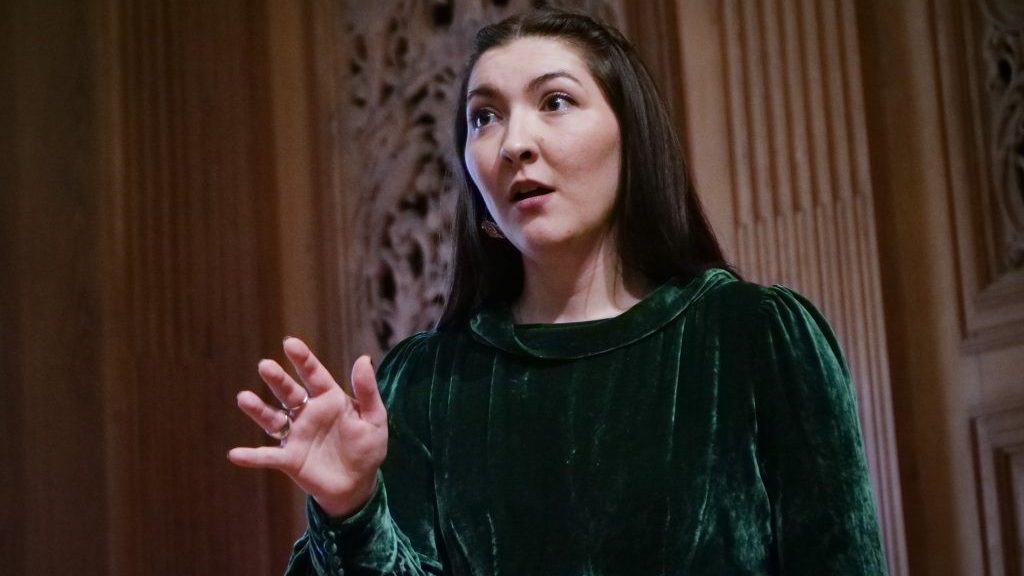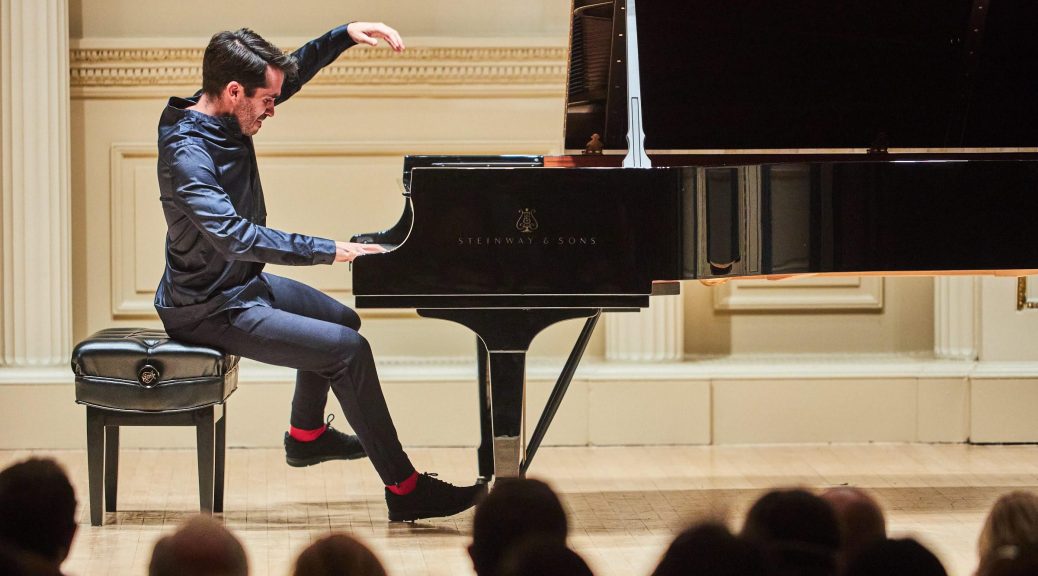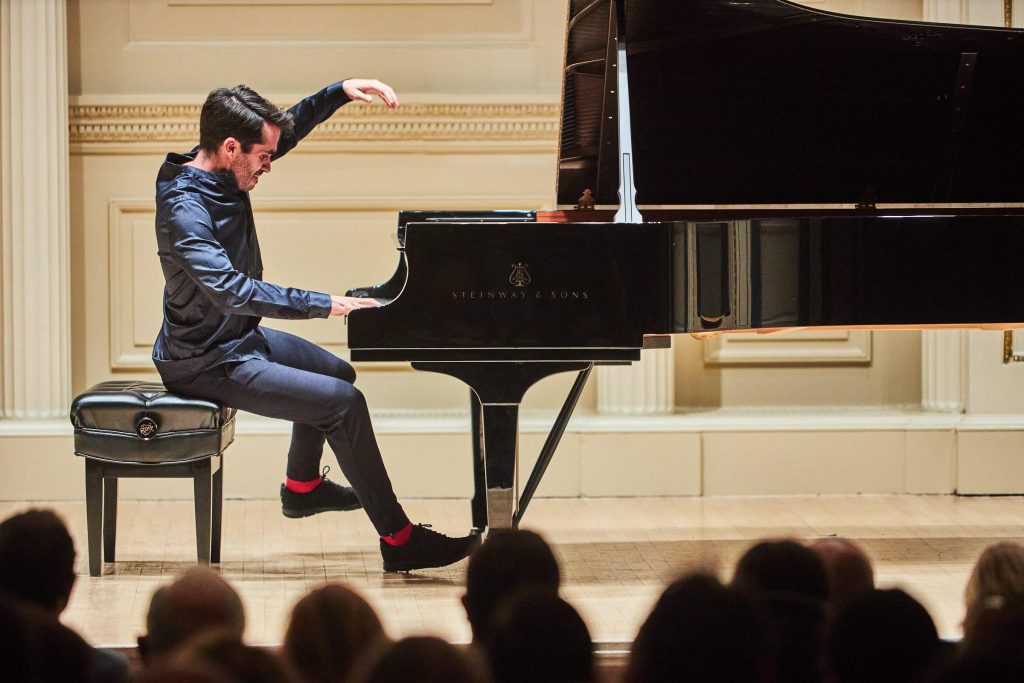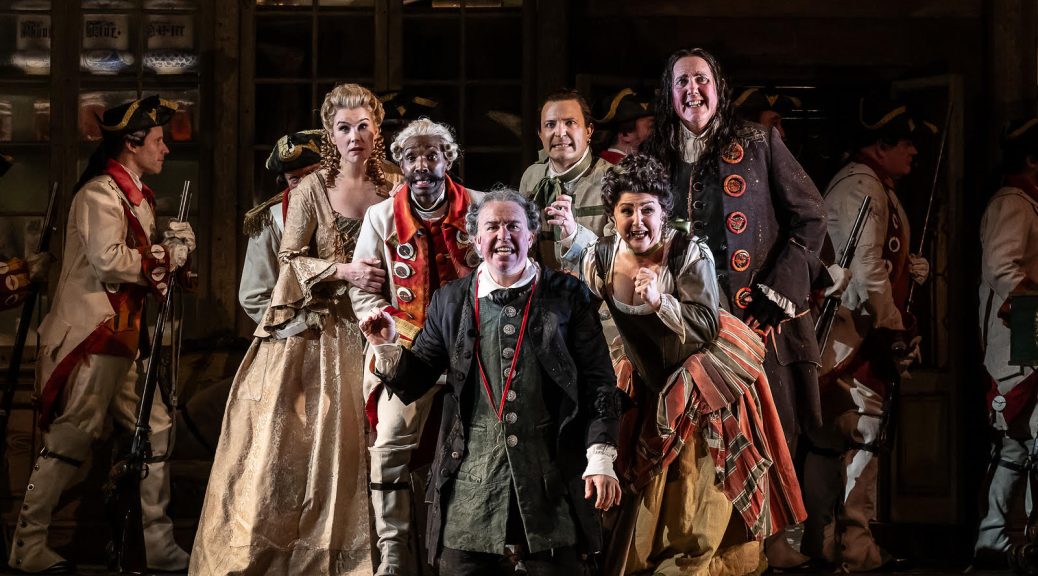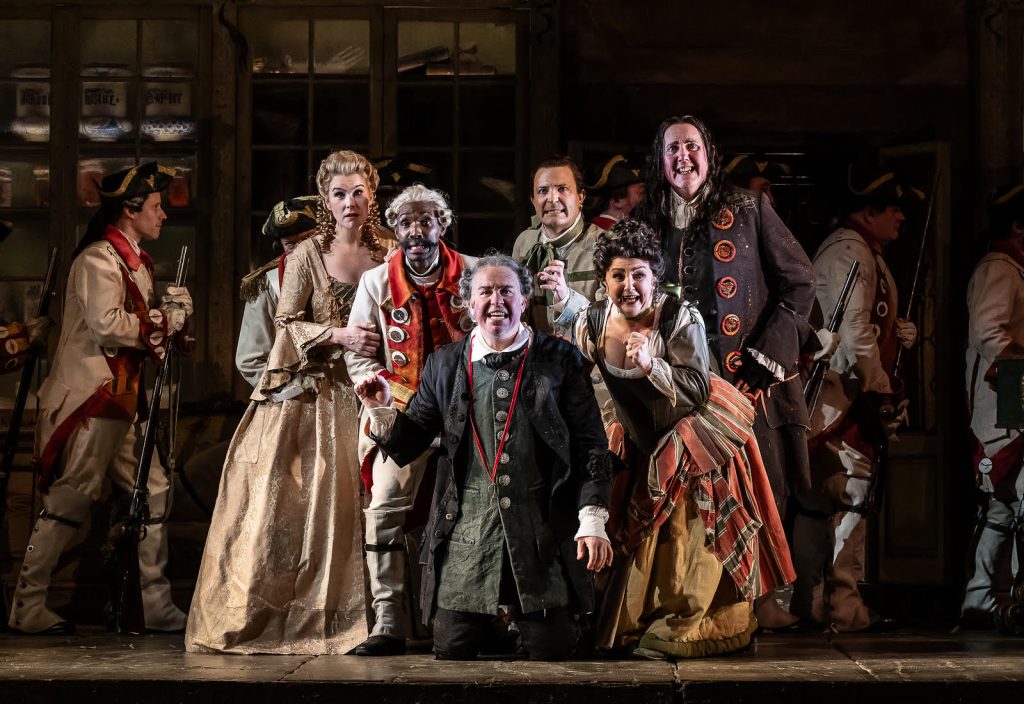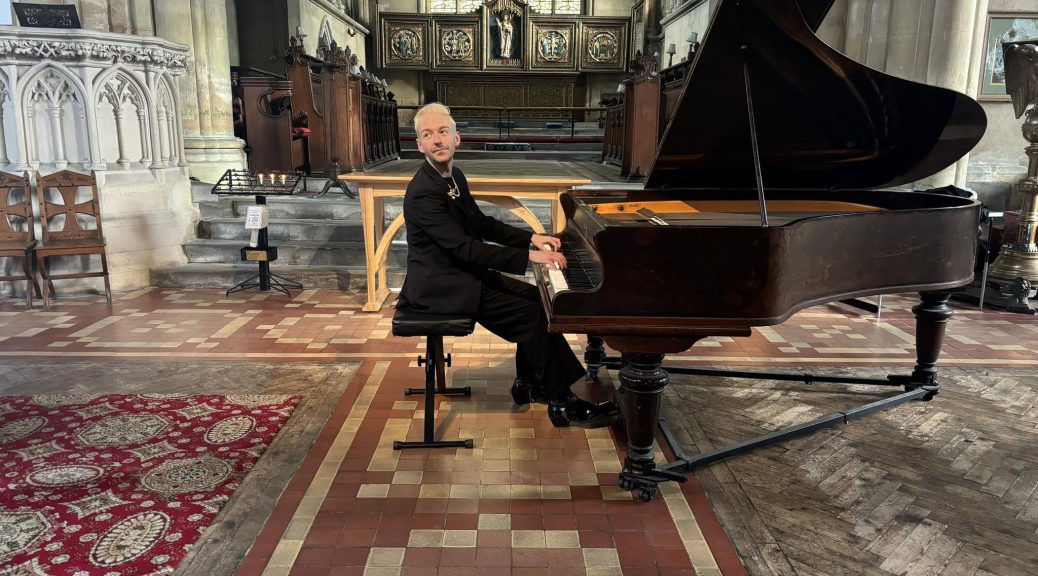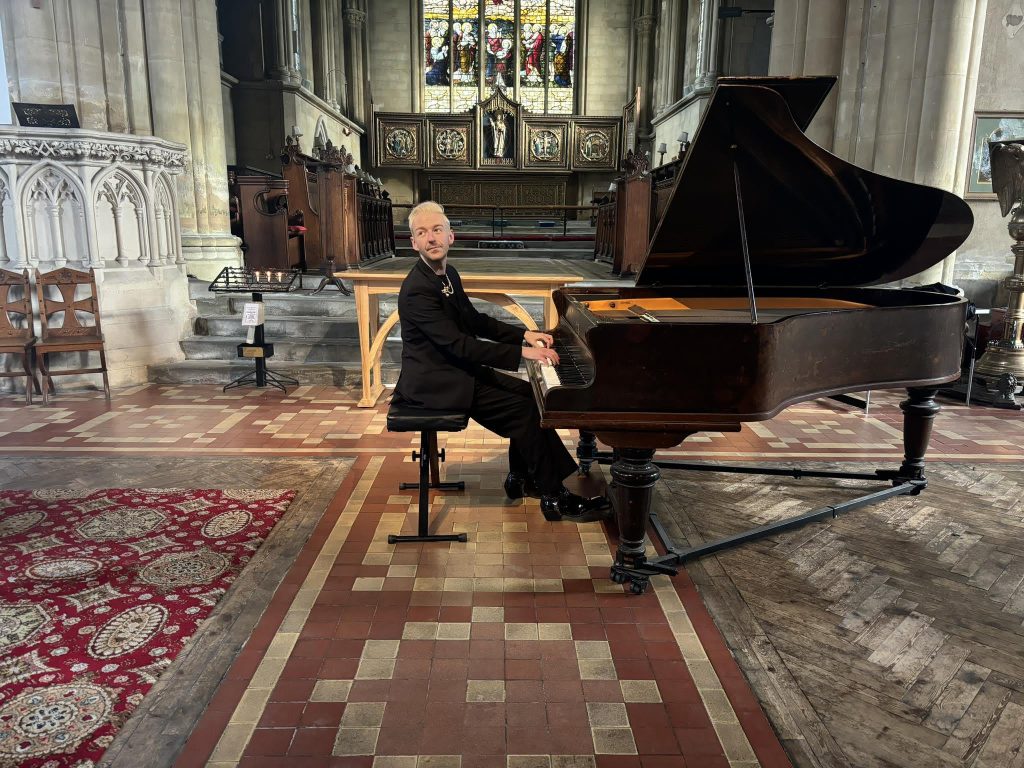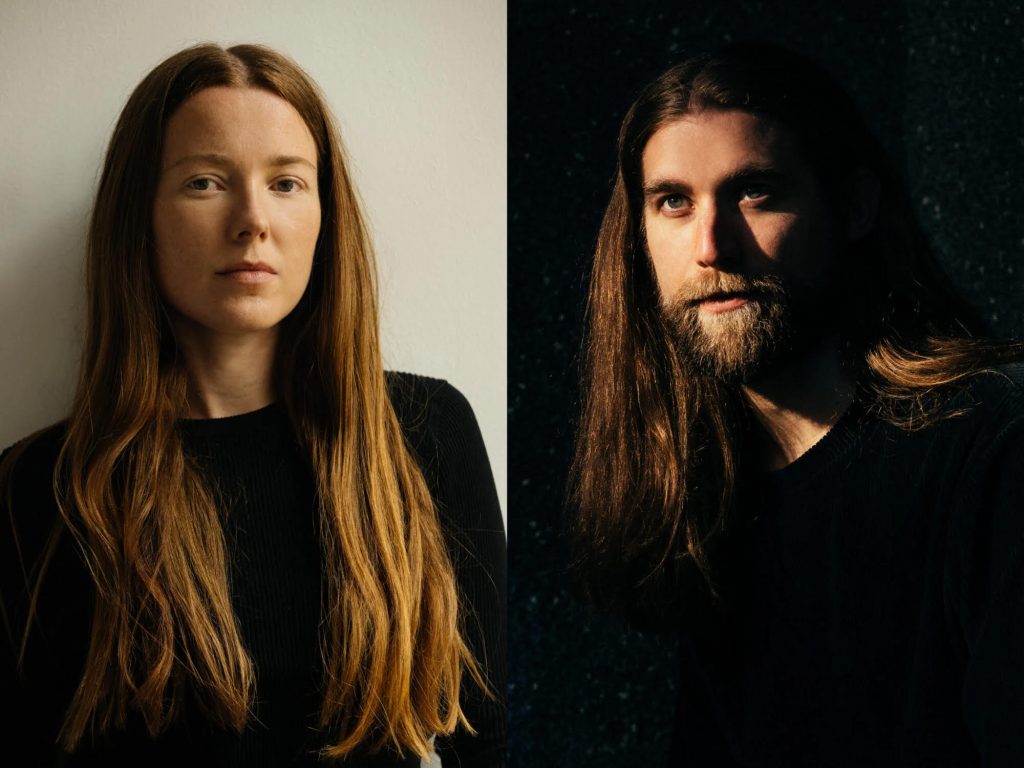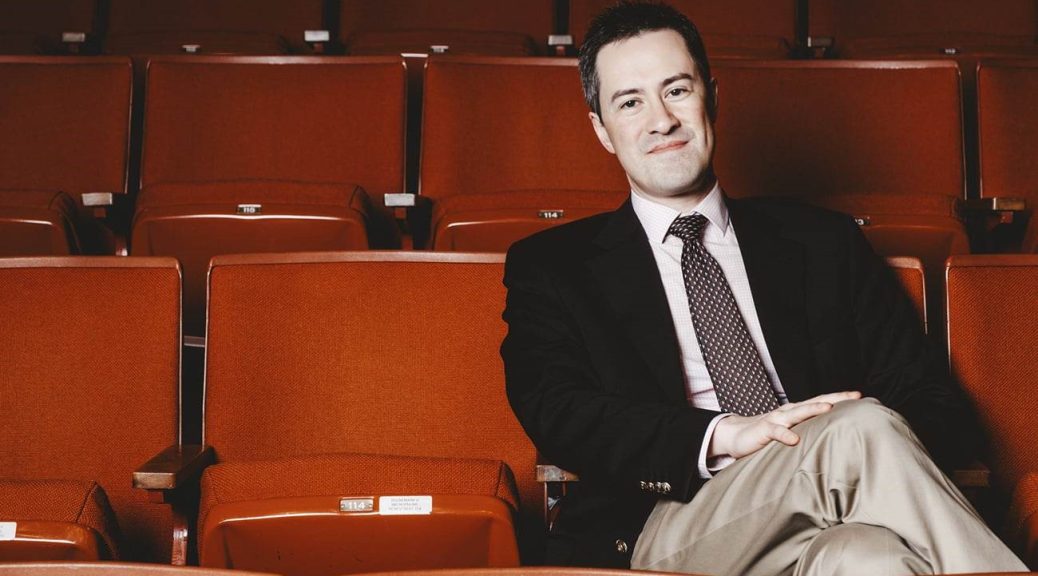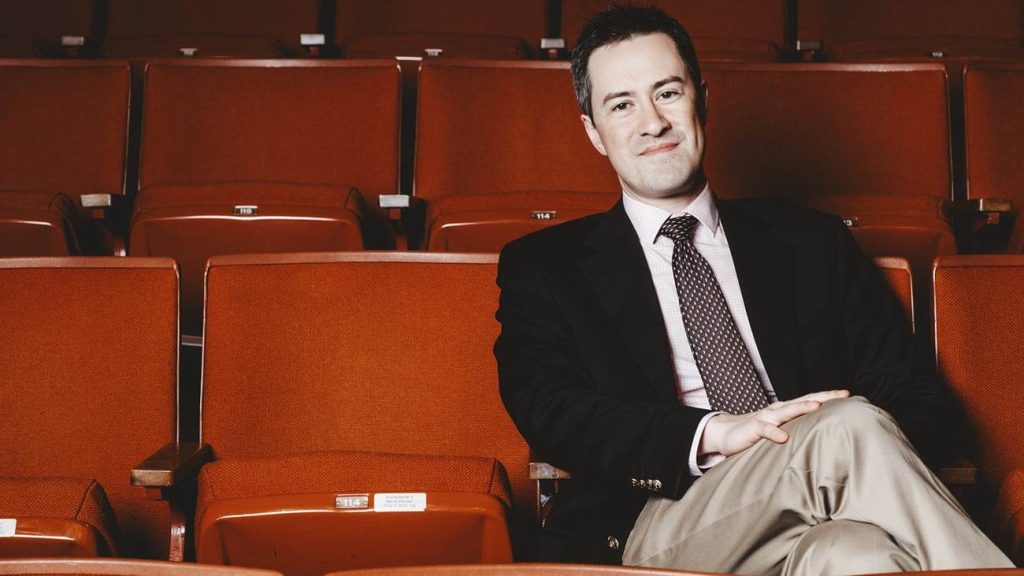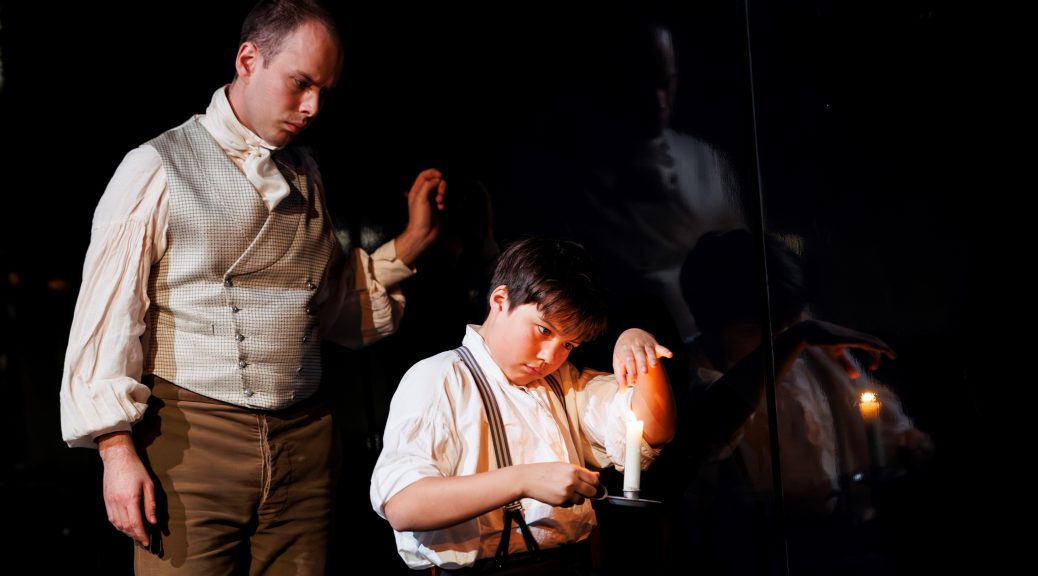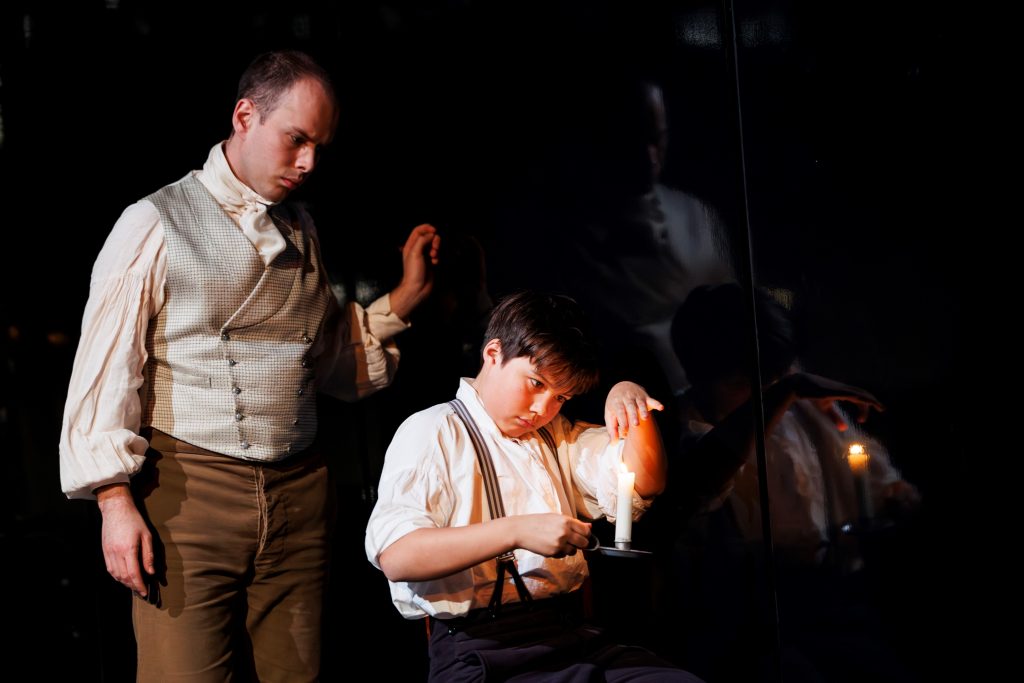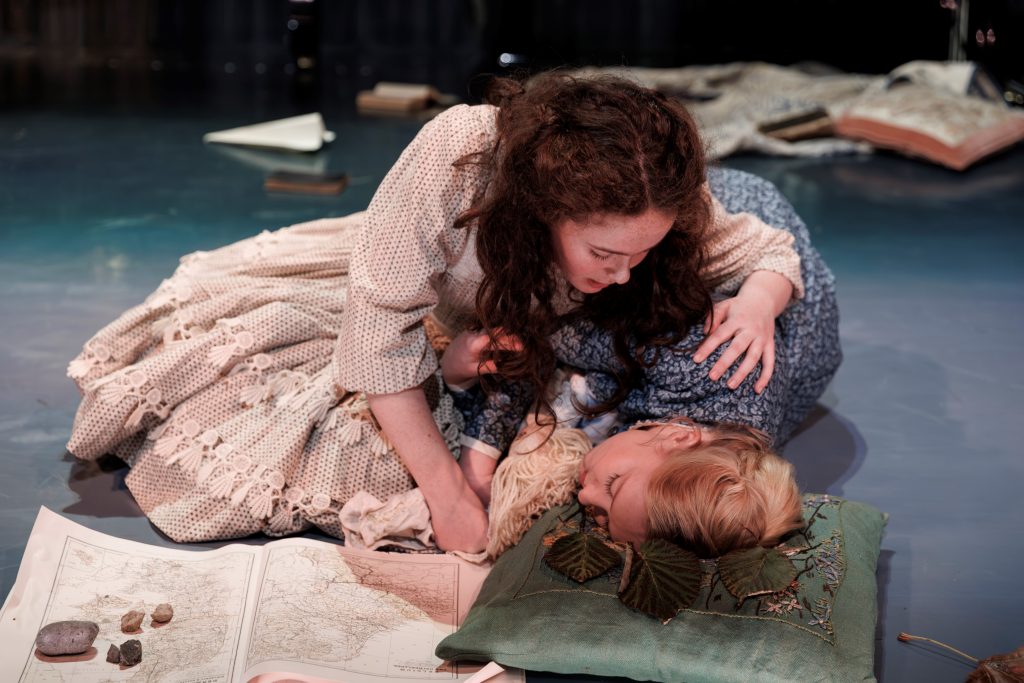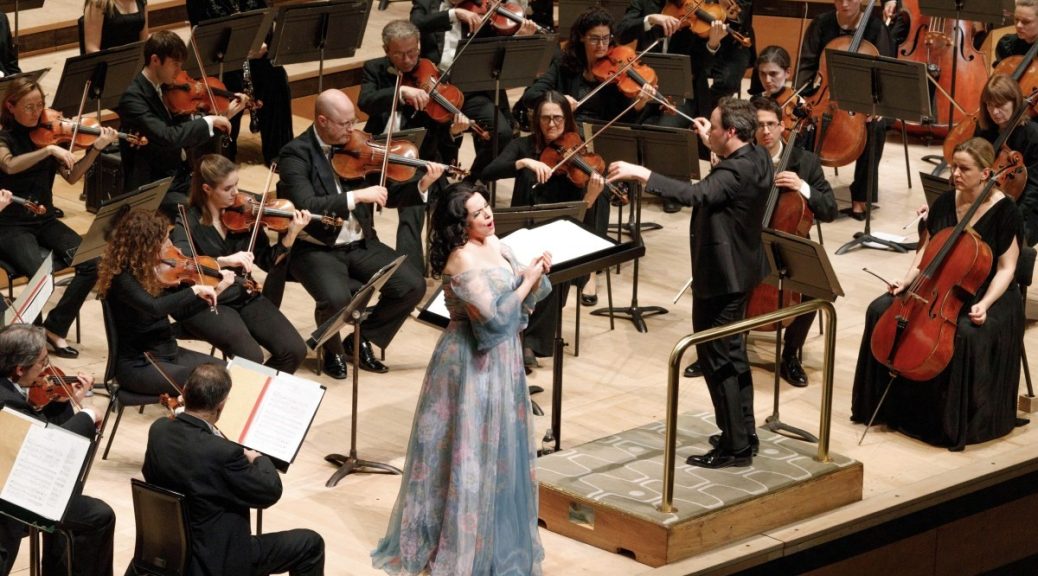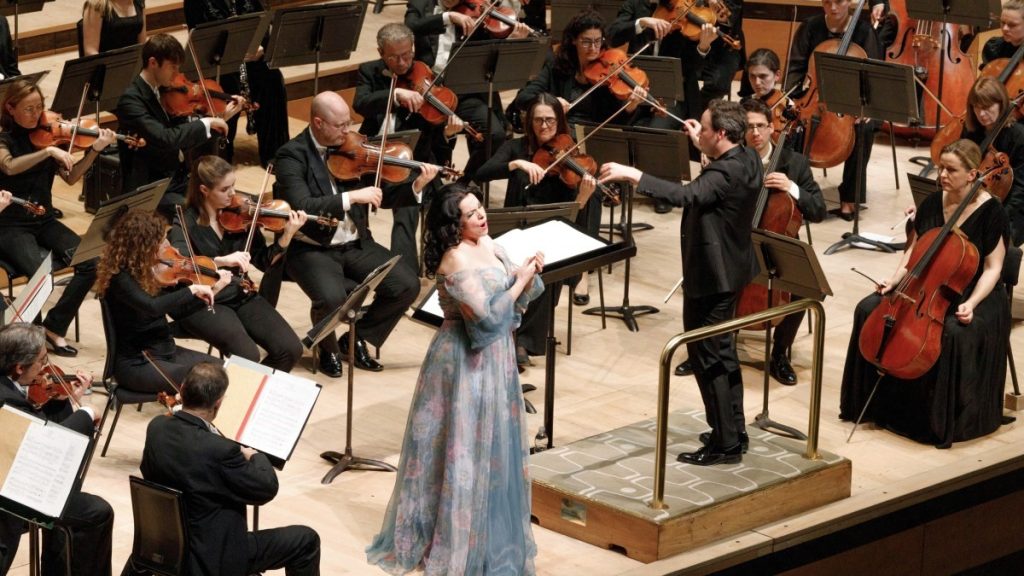 (3 / 5)
(3 / 5)
The Welsh National Opera’s staging of Mozart’s Così Fan Tutte takes literally the opera’s alternative title, The School of Lovers, setting the action in a British school with a 1970s feel. The first act opens with the chorus in school uniforms carrying gigantic cutouts of genitals and plants onto the stage and forcing sexual innuendos on the opera.
Don Alfonso (José Fardilha) is the headteacher betting with school kids, Ferrando (Egor Zhuravskii) and Guglielmo (James Atkinson), that their fiancés, Dorabella (Kayleigh Decker) and Fiordiligi (Sophie Bevan ) can be easily seduced. The lovers accept and dress up as late 1960s hippies with fake moustache and set off to woo each other’s girlfriend. Don Alfonso engages the service of Despina, here a dinner lady, to add pressure on the girls. Dorabella and Fiordiligi resist the admirers as much as possible but they are outnumbered and outwitted by the conspiracy.
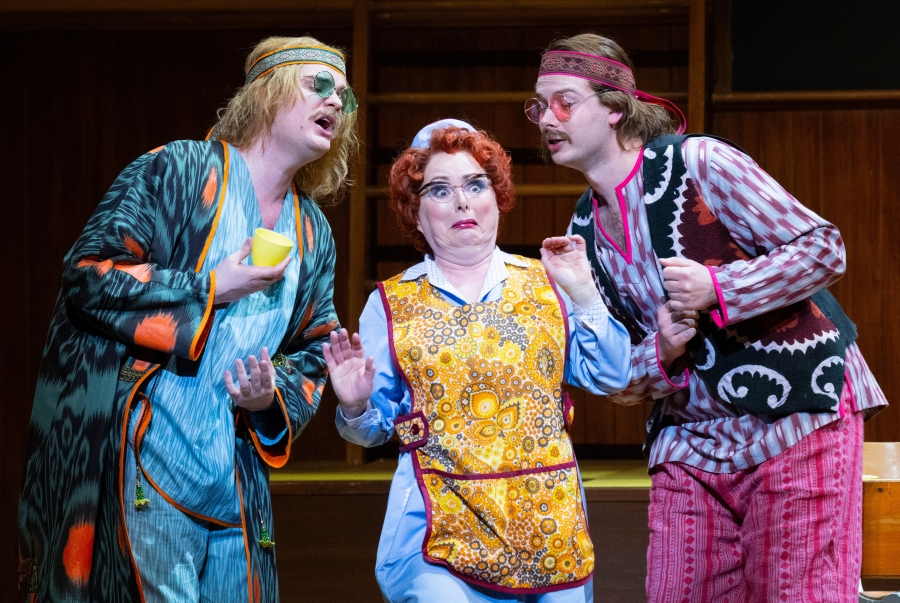
Egor Zhuravskii as Ferrando, Rebecca Evans as Despina, and James Atkinson as Guglielmo. Photo credit Elliott Franks
The Così Fan Tutte is by no means an easy opera for a contemporary audience. It is blatantly sexist with men putting pressure on women to the point of emotional abuse. The seducers are not only faking love but also pretend to take poison to blackmail the girls into giving in to their advances. Lorenzo Da Ponte’s drama makes fun of the late 18th century battle between reason and sentiment. Mozart’s music delivers its irony by juxtaposing dramatic arias with musical clichés to draw attention to the contrived nature of the situation. This complexity is lost under the direction of Max Hoehn.
Hoehn’s overtly sexual comedy comes dangerously close to a Benny Hill sketch. Rebecca Evans, as Despina, gives a solid vocal performance, weighed down by the heavy-handed interpretation set by the tone of the production. There is no subtle irony to counterbalance the deep sentiment expressed by Dorabella and Fiordiligi. The occasional incursion of members of the chorus as teenagers doing nothing but playing with cutouts on the scene only succeeds in trivialising the drama.
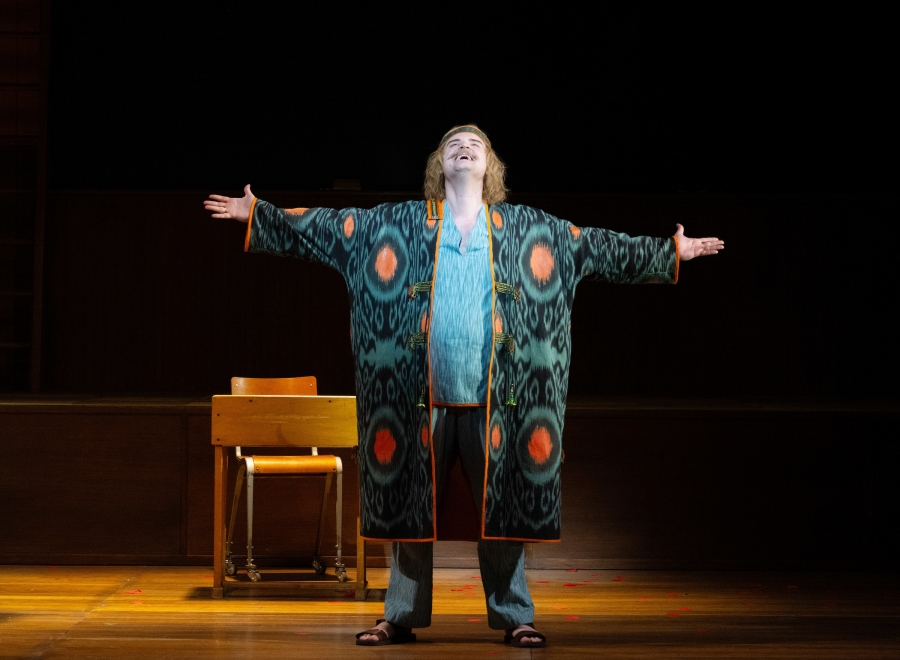
Egor Zhuravskii as Ferrando. Photo credit Elliott Franks.
The fine performances keep this unsteady ship afloat. Egor Zhuravskii excels as Ferrando. Sophie Bevan gives a good performance as Fiordiligi, though at times a little strained. Kayleigh Decker, as Dorabella, and Rebecca Evans, as Despina, give good solid performances. The trio Bevan, Decker and José Fardilha, as Don Alfonso, deliver an exquisite Soave sia il vento. This production cuts slightly the opera yet the orchestra, conducted by Tomáš Hanus, maintains a pace that still feels too slow. The strength of this production lies in the ensemble pieces delivered beautifully by the six singers.

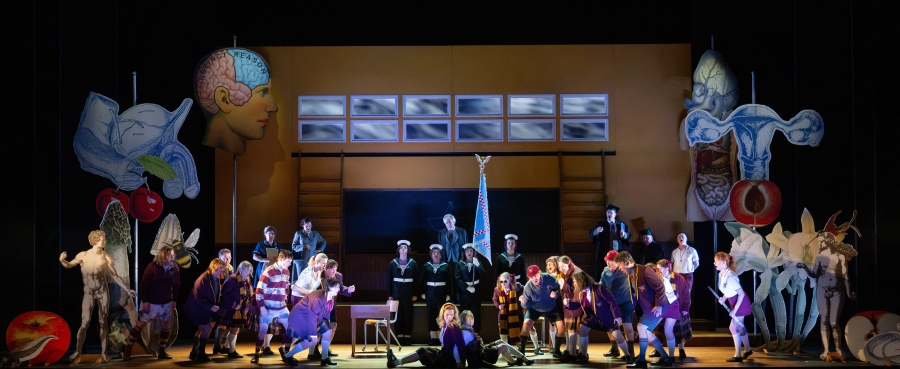
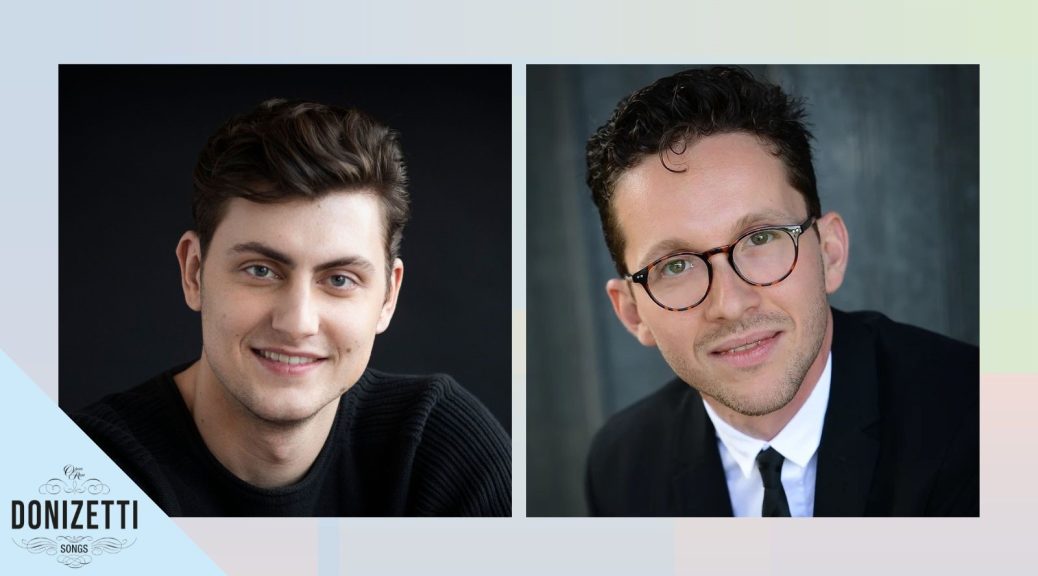

 (4 / 5)
(4 / 5)